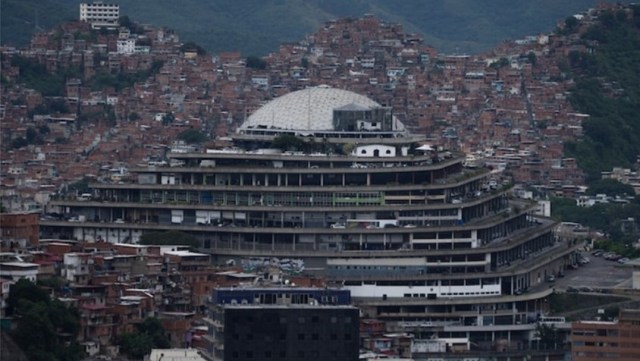
Screams often spill out in the halls of El Helicoide, the headquarters of Venezuela’s intelligence service agency, investigators say. Inside the imposing, spiral-shaped building in the center of Caracas, they found that detainees – who are often journalists, activists or government opponents – are routinely subjected to beatings, rape, electric shocks, mutilation, asphyxiation and other types of torture.
By Washington Post – María Luisa Paúl
Sep 21, 2022
The orders for the abuse – which international organizations and human rights leaders say constitute crimes against humanity – usually come from the highest level of government: the president and his inner circle, according to a new U.N. report.
“President Nicolás Maduro, supported by other high-level authorities, stand out as the main architects in the design, implementation and maintenance of a machinery with the purpose of repressing dissent,” U.N. investigators concluded.
Tuesday’s report is the third to be released by the U.N. Fact-Finding Mission on Venezuela (FFMV) since 2019, when it began assessing the country’s human rights violations. The previous documents delved into extrajudicial killings, arbitrary detentions and torture in Venezuela, as well as the justice system’s response to such violations. But by carrying out interviews with nearly 250 people, the FFMV says it has identified the chain of command that works to silence, discourage and quash opposition to the government.
“This has been the most blunt report when it comes to pinpointing who’s responsible,” Enderson Sequera, a Venezuelan political analyst, told The Washington Post. “It shows the real reason why we haven’t been able to recover democracy and freedom in Venezuela – because we’re facing an authoritarian regime that is capable of murder, torture and persecution to stay in power.”
The report’s evidence points to Maduro, his closest allies, and two state military and civilian intelligence services – namely, the Directorate General of Military Counterintelligence (DGCIM) and the Bolivarian National Intelligence Service (SEBIN).
In El Helicoide, where SEBIN operates, “substantive orders mainly came from President Maduro,” the agency’s former director, Manuel Ricardo Cristopher Figuera, told investigators. Diosdado Cabello, the country’s former vice president and a member of the National Assembly, would also provide a list of targets to detain – mainly civilians, high-profile critics and opposition members. The government would then surveil those targets, sometimes bugging their phones, before planting evidence on them, arresting them without warrants or kidnapping them, according to the report.
Detainees told investigators that once inside the prison, they were subjected to torture ranging from death threats against their families to forceful feedings of feces and vomit. Some recalled being put on “la señorita,” a device that lifts and distorts bodies before plunging them into a water tank. At other times, they were held naked inside a room with freezing temperatures, under bright lights and in isolation – a form of psychological abuse that distorts the senses, the report states. Detainees also frequently experienced sexual violence, investigators found.
“One male detainee reported that SEBIN agents threatened to rape him, and forced a gun inside his mouth,” the report details. “When he started crying, they laughed. The agents then made him ask for their blessing.”
Those acts were closely mirrored about eight miles east in Boleíta, which houses the DGCIM’s detention cells and administrative offices. Prisoners there include current and former military officers, some of whom are accused of plotting against Maduro or not showing enough support for the government, the report states. Similarly to SEBIN’s modus operandi, “in certain cases, President Nicolás Maduro and other persons of his inner circle, as well as other high-level authorities were involved in selecting targets,” according to the report.
Investigators recorded over 120 cases of torture in Boleíta. In one, the DGCIM officials created a game using a long stick where they had “detainees fall backwards on the stick to see if it would enter their anuses,” according to the report. Another man was made to conduct a “torture session” of other detainees.
“Guards required him to hit five men on the head, after they had been forced to jump up and down and then to kneel, while naked. The men were in their sixties and seventies,” investigators wrote.
The report also details abuses in Arco Minero del Orinoco, a swath of gold-mining land in southern Venezuela that has turned lawless as state and armed criminal groups battle for control of the precious mineral – leaving local populations, including Indigenous communities, caught up in the violence. According to investigators, they too have been subjected to extortion, murder, disappearances, beatings, sexual violence and an utter lack of the rule of law.
…
Read More: Washington Post – Venezuela’s top leaders committing crimes against humanity: U.N. report
…

